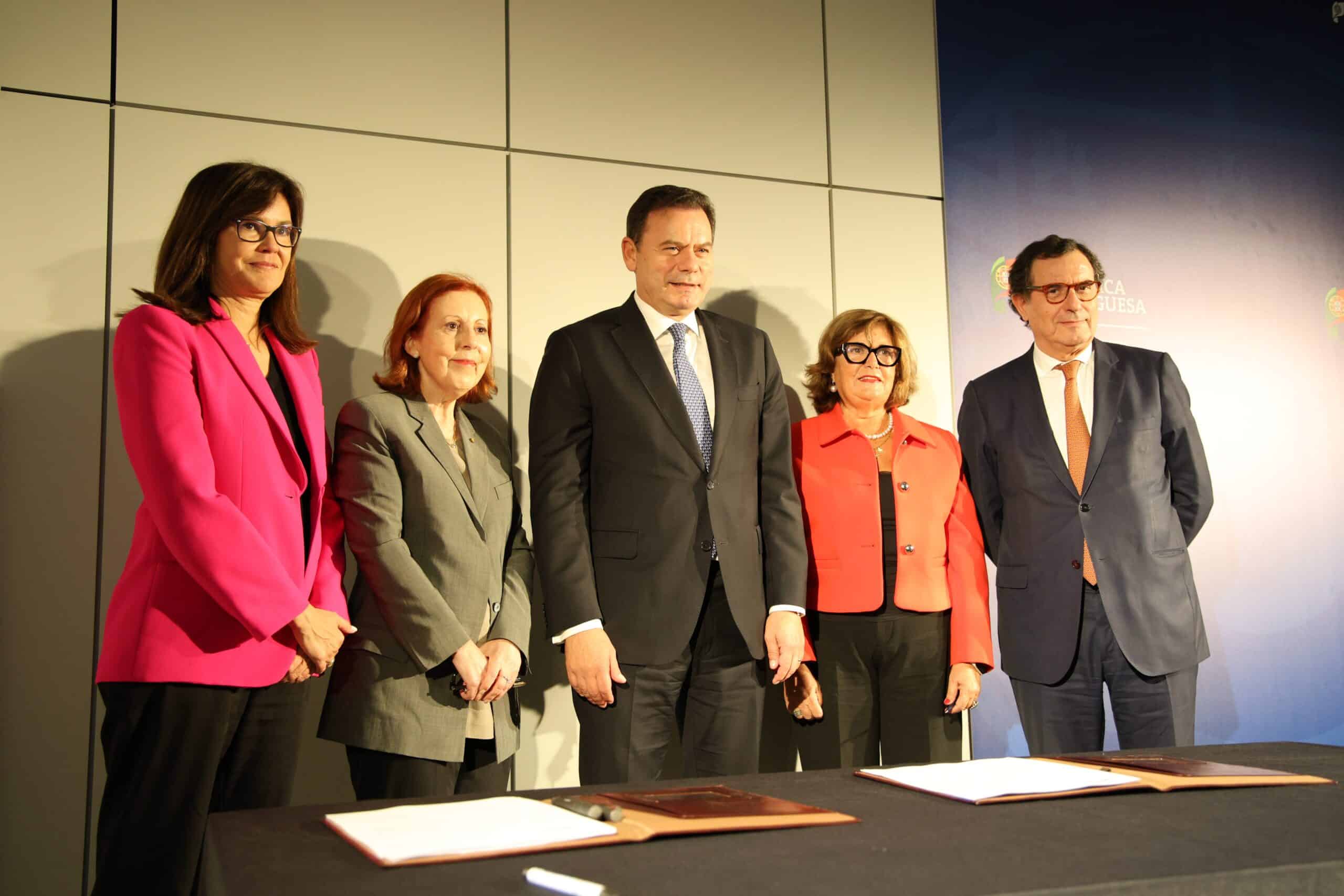Luís Montenegro said “we can never lose focus on accountability” at the signing of the construction contract for the Algarve’s future desalination plant
Portugal’s prime minister said this Tuesday (October 22) in Albufeira that the signing of the construction contract for the Algarve’s future desalination plant is a “historic moment for Portugal and the Algarve.”
At the event, Luís Montenegro called for responsible and rational water consumption management.
“We can never lose focus on accountability. We can never lose focus on responsibility. We can never lose focus on avoiding any feeling that the problems have been solved,’ said Montenegro at the signing of the contract for the design, construction and operation of the future plant that will produce fresh water from salt water.
The PM headed a government delegation – which also included Maria da Graça Carvalho, Minister of Environment and Energy, and Manuel Castro Almeida, Minister for Territorial Cohesion – that travelled to the Algarve to sign the contract at the AHETA (Algarve hoteliers association) headquarters. The event was also attended by mayors from across the Algarve and MPs, as well as Carmona Rodrigues, president of the Águas de Portugal group, and representatives of the consortium of companies involved.
The future plant, which will source seawater about two kilometres off the coast of Albufeira, will be built by a Portuguese-Spanish consortium made up of GS Inima, Aquapor, and Luságua, as part of a contract valued at €108 million, half of which is funded by Portugal’s PRR (Recovery and Resilience Plan).
The plant will produce 16 million cubic metres of water per year in its first year of operation, equivalent to around 500 litres per second. The system will be fully equipped, with pipelines at sea and on land, and brine disposal systems, capable of handling up to 750 litres per second or 24 million cubic metres per year, explained João Ramos, Asset Management Director at regional water company Águas do Algarve.
By coupling the output of the desalination plant with other water-saving measures, such as efforts to reduce water losses, the future Pomarão water collection project, and the strengthening of water supply to western Algarve municipalities from the Alcantarilha water plant, Águas do Algarve believes it will be possible to obtain around 69 million cubic metres of water per year, close to the average annual water supply of the Algarve’s regional system.
Meanwhile, Luís Montenegro spoke of the importance of responsible and rational water consumption management, even when the desalination plant is operational.
While water restrictions in the Algarve were eased earlier this year thanks to some badly needed rainfall, the PM insisted that the easing of restrictions “must not be confused with leniency.”
“The fact that we can relax some restrictions now, and possibly more in the future, should not lead to the perception that the issue is resolved. On the contrary, it’s important to say that, as we make significant investments and ensure sustainability for the future, we must remain focused on responsibility and not fall into the belief that the problems are solved,” he said.
“Environmental extremism is wrong; so is ignoring environmental concerns”
Luís Montenegro also addressed the criticism that the desalination project has received from environmentalists, who defend the plant should only be built if all other alternatives to address the Algarve’s water scarcity fail.
Explaining his concept of sustainability, the prime minister tried to explain that balance must be achieved between environmental preservation and sustainability. The PM stressed that sustainability only makes sense if it “serves people and communities”. If it doesn’t benefit the land, people, and the economy, “then it’s not truly positive sustainability,” Montenegro defended.
“We need to consider all these factors, and those who focus only on one of them are mistaken. Environmental extremism is wrong, and ignoring environmental concerns is also wrong,” he added.
Article updated at 6.01pm




















